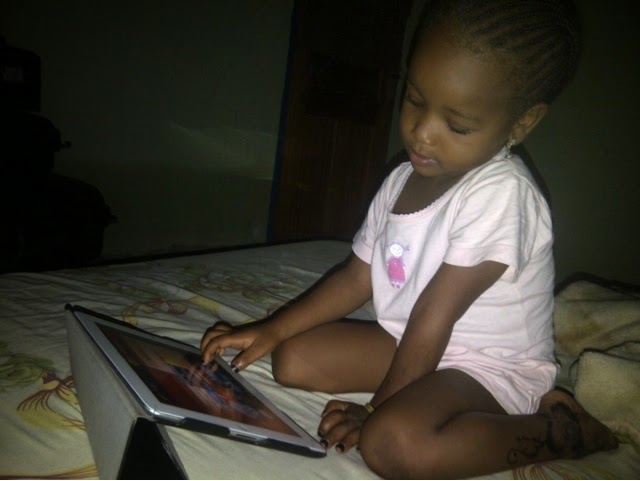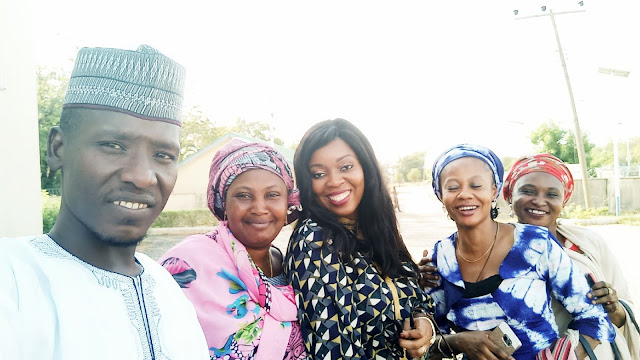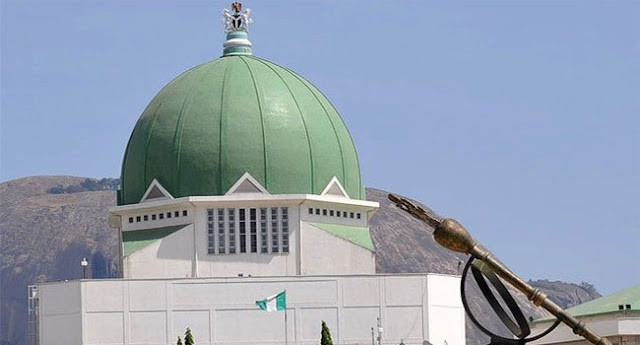The Brewing Revolution – Aver Angweh
The internet (World Wide Web) came into widespread use in the mid 1990s. Its main impact on politics is probably to increase transparency in the process of governance. Equally the internet gives a cheap and easy medium to extreme parties, conspiracy theorists, terrorists and pedophiles; It offers a great platform to reach millions of people with amazing targeting possibilities including age, gender, interest and behavioral targets. As always, politicians are tempted to blame the media for its role in exposing their darker sides, some have even attempted to impose controls on the use of the internet in recent times.
The internet gained its prominence in Nigeria with the advent of the GSM cellular phones in the early 2000s. This was the landmark achievement of the former President Olusegun Obasanjo’s regime as a civilian president. Since then the GSM has proved to be by far the most accepted social commodity in the history of the country, with its far reaching services widely embraced by both the young and the old such that almost all of our everyday life today depends on cellular communications and internet connections. All the stages of this metamorphosis were completed in just a little over a decade.
To the Nigerian government, the introduction of the GSM and better internet service providers to the terrain was just another step towards improving the dissemination of information across the country, but little did they know they had opened “Pandora’s box”. At first the internet services were only available to the privileged few in the society because the majority of the nation’s largely poor population could not afford them ,and so had very limited access to the usage of these new facilities , but this was not to last for very long. The opening of the free trade for telecoms operators in Nigeria was the turning point for the internet community in Nigeria, with the birth of this laissez faire trade in communication services and gadgets, it became cheaper for everyone to acquire cellular phones and therefore accessibility of the internet was finally unlocked for the greater populace. The use of commercial desktop computers and cyber cafés for internet business suddenly declined at an alarming rate.
The youths are mainly at the centre of this industrial revolution as the main custodians of the internet know-how, unlike their much older counterparts, only a few elderly folks in the contemporary Nigeria were able to gain the acquaintance of these new IT gadgets, most of them were contented with the simple cell phones which are not too complex for their already occupied minds. The younger ones however became intrigued with this new and faster means of spreading information amongst themselves mainly for their purpose of social interaction via ‘New Media’, and thus the outburst of the use of social media.
In 2006, the arrival of the monstrous ‘Facebook’ took the world by storm, and today it has over 1.23 billion users worldwide. Also along came other social media channels like Youtube, Yahoomail, Myspace, LinkedIn and Twitter. According to Danny Shea in the huffington post accessed on 20th June 2010, social media has become the highest activity on the internet. The rapid growth of social media activities that has been observed over the last four to five years is indicative of its entry into mainstream culture and its integration into the daily lives of many people. In parallel with this, social media have also gained considerable attention from the academic and business worlds.
According to the BBC program “Superpower” In 2008, the Nigerian internet population stood at about 24million people, information sourced from the International Telecommunication Union ITU. This data places Nigeria as Africa’s biggest internet market dwarfing South Africa and Egypt.
Today with over 28million youths in Nigeria connected to the internet, it is indeed true that the internet has achieved the primary goal of its introduction, the cellular phone has greatly eased internet access to citizens all over the country. With the youths from ages 15-45 taking over the internet in Nigeria, it has proven to be a credible threat to the Nigerian government and its agencies, as there is hardly any government policy that can evade the internet and miss the scrutiny of a million prying eyes. Pressure groups have arisen, whistle blowers have rallied around and a new bond of integration has been found on the internet or on social media to be specific. These groups are highly productive regardless of the fact that they are sometimes missing in the physical, information gets circulated at the speed of light and in a matter of minutes the whole country gets put in the know of any event or incident affecting the masses, it is like taking off a hoodwink or better still like giving sight to the blind. The government being the biggest loser in this equation can no longer rob the Nigerian public blind without a good fight from an army of protesters, even if these protests do not change the nefarious policies, they go a long way to enlighten the youths and inform the whole world of such denounced policies. It shakes the tree hard enough to remind the ‘powers-that-be’ that a revolution is imminent in a land where the masses have been suppressed and oppressed for too long.
Before the advent of social media in Nigeria, it was an almost impossible task to get the average youths interested in politics or National issues, this is because there was no easy avenue to rally round their thoughts and sample opinions or capture their attention, since the only approach would at that time have required physical interaction, which was almost unrealistic. But today it is impossible for a government policy to be implemented without proper scrutiny from the internet community and the users of the social media which largely comprises of the youths. We have seen a good number of campaigns erupt on the social media which have gone a long way to put the villains on the hot seat no matter how recalcitrant they have proven to be.
Being it impossible to divorce government business from politics in a growing democratic society like ours, the more the government’s actions get perused on the internet, the more the political actors and party juggernauts are being placed under the limelight. This then ushers in the salient issues of knowing who is capable and who is incompetent, who has a good track record and who has failed, who is this new person and what is his pedigree etc. I dare to aver that just 10 years ago the majority of Nigerian youths would care less about these questions, but today even the ones that care very little cannot help but notice the muttering over their heads hence making them conscious of such issues whether they choose to participate actively or not. Politics is slowly moving online, According to the Oxford Internet Survey; an annual snapshot of our internet behavior shows that in 2011, for the first time, people were more likely to contact a politician or a political party online than offline. Meanwhile as official party membership withers, another form of participation grows around it: Facebook groups and twitter followers.
It is 2014 in Nigeria and every agency of the government is documented on the internet. The Freedom of Information Act is almost 2 years strong, there are 2 major political parties all represented on the internet by their members and privies, and there are 28million young Nigerians on the internet. The possibility of “politics as usual” in national business is at an all time low due to this chain reaction. In 2011, the nation welcomed the most informed and politically alert electorates it has ever seen, the voters turn up was massive, the circulation of information amongst parties and their supporters was excellent, and the propaganda theorists had the internet as a haven for their crafts, they simply couldn’t wish for more. Although the electoral process was still flawed, the handwriting on the wall was as clear as never before.
If one thing leads to another from now until next year which is election year then perhaps we might see a yet better turn up and wider sensitization as well as stronger zeal for participation in politics from the internet heads who in recent times have also taken overt steps towards physical participation in nation building and society monitoring activities.
Most times critics lash out referring to the Nigerian youths as mere internet activists and asking questions like what value is there in clicking and texting? I say “a lot”, at least people involved in social media groups or online activism are more likely to vote or get involved in the offline activism too. This is especially true of the smaller or radical parties, for whom Facebook and twitter has effectively replaced the town hall forums. It all begins from somewhere and it’s just a matter of time before talk becomes action in the world of politics, if actions are not taken immediately at least ideas are been shared and eyes are been opened, all these will make the revolution more fierce but all physical action without prior strategies and full awareness would only amount to disorganized and aimless ruckus with no real substance.
Just so the doubting Thomas would know, the Egyptian revolution that led to the resignation of the infamous president Hosni Mubarak began when on the 8th day of June 2010, a 29 year old Egyptian by name Wael Ghonim was browsing his Facebook and found a startling image: a photograph of a bloodied and disfigured face with its jaws broken lying dead in the street, he soon found out that the photo was that of Khaleed Mohamad Said, a 28year old Egyptian who had been beaten to death by the Egyptian police. At once angered, the Egyptian born Ghonim went online and created a Facebook page. He wrote; “Today they killed Khaled, if I don’t act for his sake, tomorrow they will kill me”, he named the page “Khullena Khaled Said” meaning “We are all Khaled Said”. From that moment Ghonim tapped into a shared frustration immediately eminent online. Two minutes after he started his page 300 people joined and in two months his followership had grown to 2,500 people, what bubbled online inevitably spilled onto the streets, starting with a series of “Silent Stands” that culminated into a massive and historic rally at Tahrir Square in downtown Cairo.” This ignited an uprising that led to the resignation of president Mubarak and the dissolution of the ruling National Democratic Party. In turn, Ghonim who was arrested during the height of the protests reluctantly became one of the leading voices of the Arab Spring.
In Nigeria, the coalition of the internet and the Nigerian youths is a match made in heaven, this romance has brought the nation and the government to the doorstep of the average Nigerians, it has rekindled the flame of nationalism which was almost doused in the past military regimes. Never would you have been reading this article without the help of the internet and this is because I never made a hard copy of it. Therefore, without stepping outside my physical space, I have tossed my own piece of wood in the slow burning flames of an imminent revolution. The fate of the country in 2015 rests in the hands of the masses, 70% of the masses are in their youth and a good 60% of the youths are connected to each other via the internet. So mathematically, if such a population says YES to positive change and also takes further steps to reach out to their offline followership, then even the high-ups will hear the voice clearly and there will be a reaction. What will then follow afterwards will be the outcome of such a reaction, be it positive or negative.
Follow Aver Angweh on twitter @DisAVERsef



Comments
Post a Comment